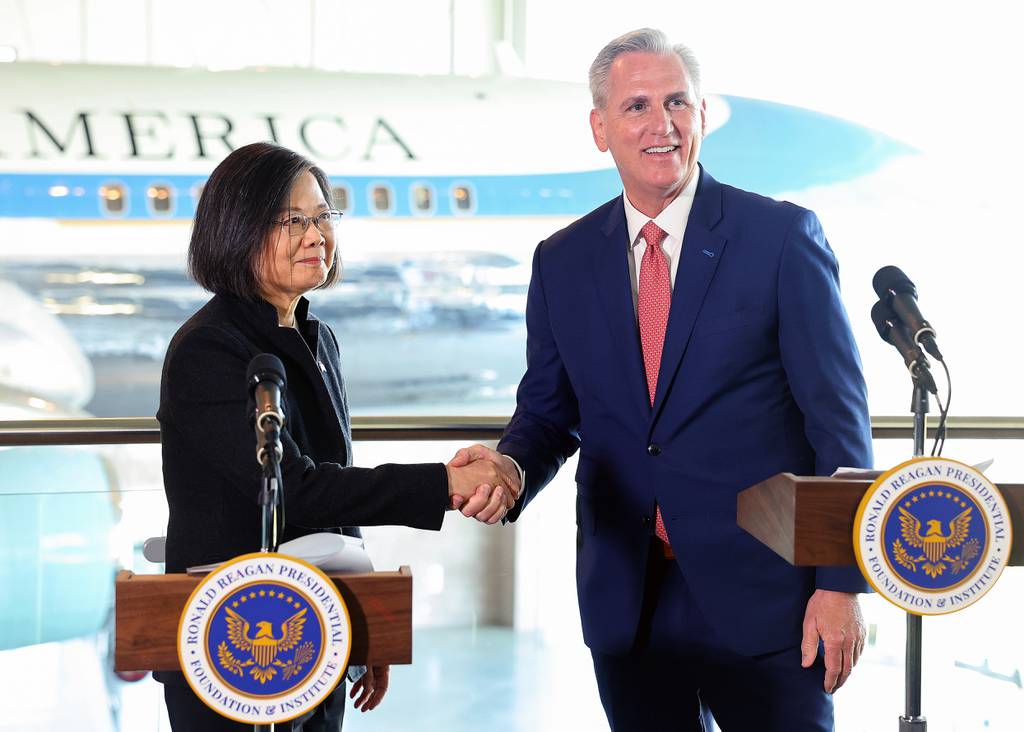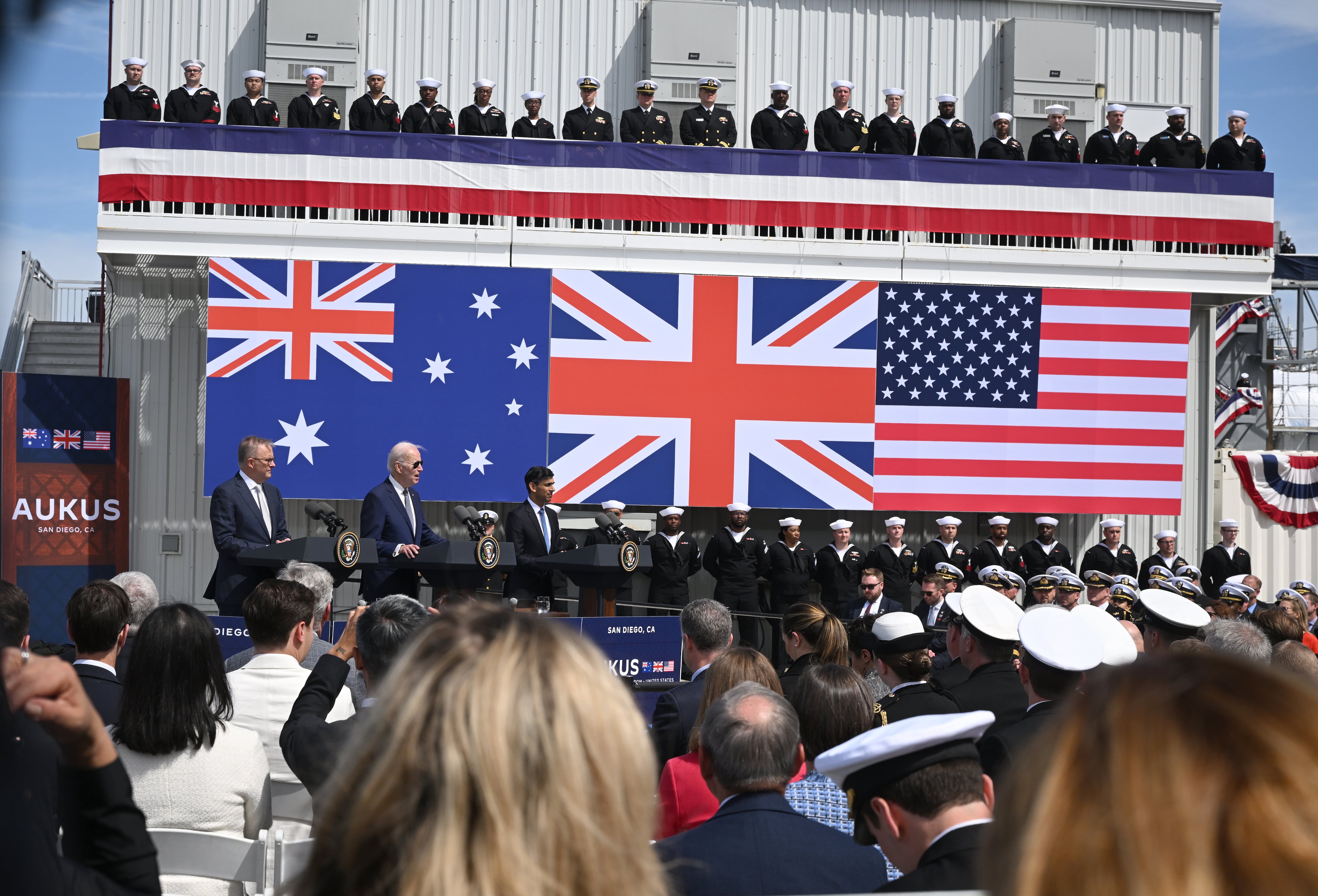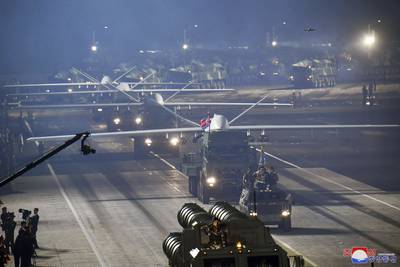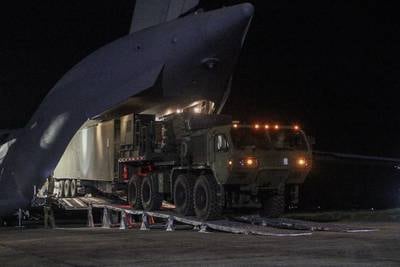WASHINGTON — The Defense Department wants to take full advantage of the authorities Congress recently granted to transfer arms to Taiwan, but first it needs the lawmakers who control the purse strings to follow through with hard cash.
Congress greenlighted $3 billion in total annual military aid to Taiwan as part of the fiscal 2023 defense authorization bill through accounts managed by both the Pentagon and the State Department. But for the most part, Congress did not approve funding for those authorities in its FY23 spending bill. In recent weeks, senior Pentagon officials have started calling on congressional appropriators to allocate the funding they require to begin using Taiwan military aid authorities.
Defense Secretary Lloyd Austin told the Senate Armed Services Committee on March 28 that the Pentagon intends to use a $1 billion authorization to transfer weapons to Taiwan via presidential drawdown authority — the same mechanism the Biden administration has used to transfer equipment to Ukraine. He noted that the administration would put forth a funding request to backfill weapons systems sent to Taiwan under presidential drawdown.
“My team is working diligently to make sure that we have the right capabilities in that particular drawdown,” Austin said. “And of course we have that authority. We will need the appropriations as well.”
The race to rush billions of dollars in weapons to Taiwan is part of the United States’ push to deter a possible Chinese attack on the island. China considers Taiwan a rogue province, and has vowed to retake by it by force if necessary.
Presidential drawdown authority would allow the Biden administration to immediately transfer materiel to Taiwan since it comes directly from existing U.S. military stockpiles. This could serve as a stopgap measure to partially alleviate a $19 billion backlog in arms sales for Taiwan, which is in large part due to production backlogs stemming from U.S. industrial base constraints.
Taiwanese President Tsai Ing-wen repeatedly raised the backlog when she met with House Speaker Kevin McCarthy, R-Calif., and numerous other lawmakers in the United States this week.
Rupert Hammond-Chambers, president of the U.S.-Taiwan Business Council, noted that presidential drawdown authority does not offer a complete solution to the backlog, “but if we’re talking about sewing a patchwork quilt here, it’s a very nice piece to put in place and hopefully provide some bridge until what Taiwan has actually bought is flowing into Taiwan at a more rapid rate.”
Foreign Military Financing
In addition to presidential drawdown authority, another senior Pentagon official told Congress in February that the department also wants Congress to fund up to $2 billion in authorized Foreign Military Financing for Taiwan. The FMF program, administered by the State Department, allows other countries to purchase U.S. military equipment using grants or loans.
“The department was clear that any authorization in the National [Defense] Authorization Act should be met with an appropriation as it relates to Taiwan security support,” Ely Ratner, the assistant secretary of defense for Indo-Pacific security affairs, told the Senate Foreign Relations Committee.
Democratic and Republican leaders on the Armed Services and Foreign Relations committees waged a behind-the-scenes fight with congressional appropriators last year to fund FMF for Taiwan with up to $2 billion in grants.
Ultimately, appropriators — concerned that a large amount in Taiwan grants would eat into competing State Department budget priorities like security aid for other countries or global humanitarian assistance — opted to fund Taiwan’s FMF for FY23 with U.S.-backed loans, which Taipei would be required to pay back within a 12-year period.
The State Department has remained hesitant to use grants for Taiwan’s FMF in FY24. Despite a push to allocate more grants for Taiwan in its budget request from Republican leaders on the Armed Services and Foreign Affairs committees, the State Department only requested an additional $113 million for FMF worldwide in its FY24 budget request.
“Priority partners could include those in the Indo-Pacific, including Taiwan, in priority countries supporting Ukraine’s fight against Russia (particularly those looking to diversify away from Russian equipment and influence) and to support regional stability in Africa and NATO’s southern flank,” according to the State Department’s budget request, released in March.
Of that $113 million, the budget request “assumes $16.0 million as a baseline for the Indo-Pacific” and noted it could “also support loans.”
But there are early signs that congressional appropriators, particularly Republicans, may have a change of heart when it comes to funding Taiwan military aid in FY24.
Sen. Lindsey Graham of South Carolina, the top Republican on the State Department funding panel, said at a March hearing that “we need to actually put money directed toward Taiwan’s defense needs” when the Senate foreign operations subcommittee advances its FY24 international affairs spending bill.
This marks a notable reversal from December, when Graham joined Democratic appropriators in pushing for loans instead of grants to fund Taiwan’s FMF.
The chairman of the House defense spending panel, Rep. Ken Calvert, R-Calif., led a congressional delegation to Taiwan in March, consisting of six Republicans and one Democrat from his appropriations subcommittee, which will be tasked with funding the backfill of any U.S. weapons the Pentagon sends to Taiwan under presidential drawdown authority.
“You can feel the wind in the sails,” Hammond-Chambers said. “Appropriators can be a wee bit hard to persuade, though, of course. That’s what we’re wrestling with.”
Bryant Harris is the Congress reporter for Defense News. He has covered U.S. foreign policy, national security, international affairs and politics in Washington since 2014. He has also written for Foreign Policy, Al-Monitor, Al Jazeera English and IPS News.








